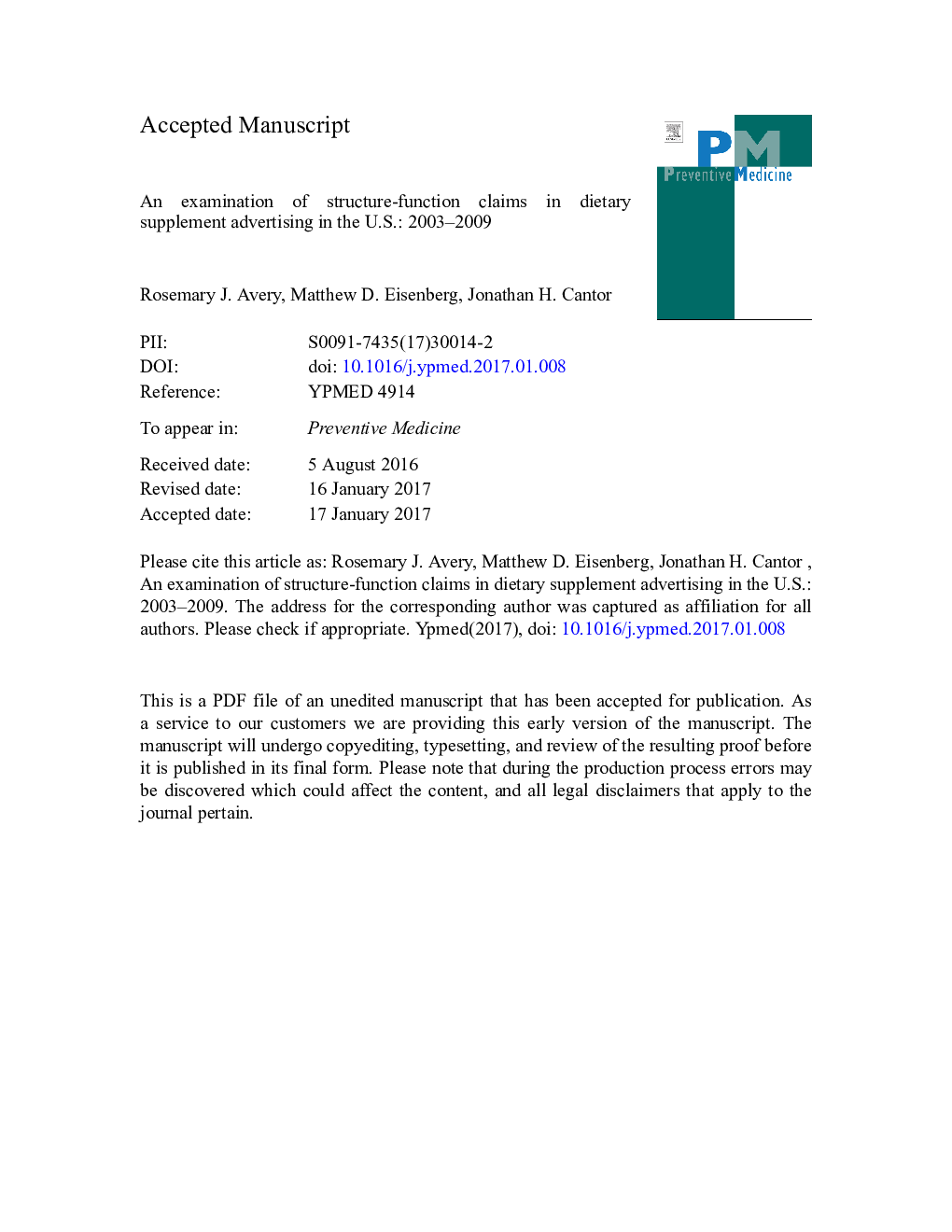| Article ID | Journal | Published Year | Pages | File Type |
|---|---|---|---|---|
| 5635798 | Preventive Medicine | 2017 | 21 Pages |
Abstract
Dietary supplement advertising cannot claim a causal link between the product and the treatment, prevention, or cure of a disease unless manufacturers seek approval from the FDA for a health claim. Manufacturers can make structure-function (S-F) claims without FDA approval linking a supplement to a body function or system using words such as “may help” or “promotes.” These S-F claims are examined in this study in order to determine whether they mimic health claims for which the FDA requires stricter scientific evidence. Data include S-F claims in supplement advertisements (NÂ =Â 6179) appearing in US nationally circulated magazines (NÂ =Â 137) from 2003 to 2009. All advertisements were comprehensively coded for S-F claims, seals of approval, and other claims of guarantee. S-F claims associate supplements with a wide variety of health conditions, many of which are serious diseases and/or ailments. A significant number of the specific verbs used in these S-F claims are indicative of disease treatment/cure effects, thereby possibly mimicking health claims to the average consumer. The strength of the clinical associations made are largely unsubstantiated in the medical literature. Claims that a product is “scientifically proven” or “guaranteed” were largely unsubstantiated by clinical literature. Ads carrying externally validating seals of approval were highly prevalent. S-F claims that strongly mimic FDA-prohibited health claims are likely to create confusion in interpretation and possible public health concerns are discussed.
Related Topics
Health Sciences
Medicine and Dentistry
Complementary and Alternative Medicine
Authors
Rosemary J. Avery, Matthew D. Eisenberg, Jonathan H. Cantor,
